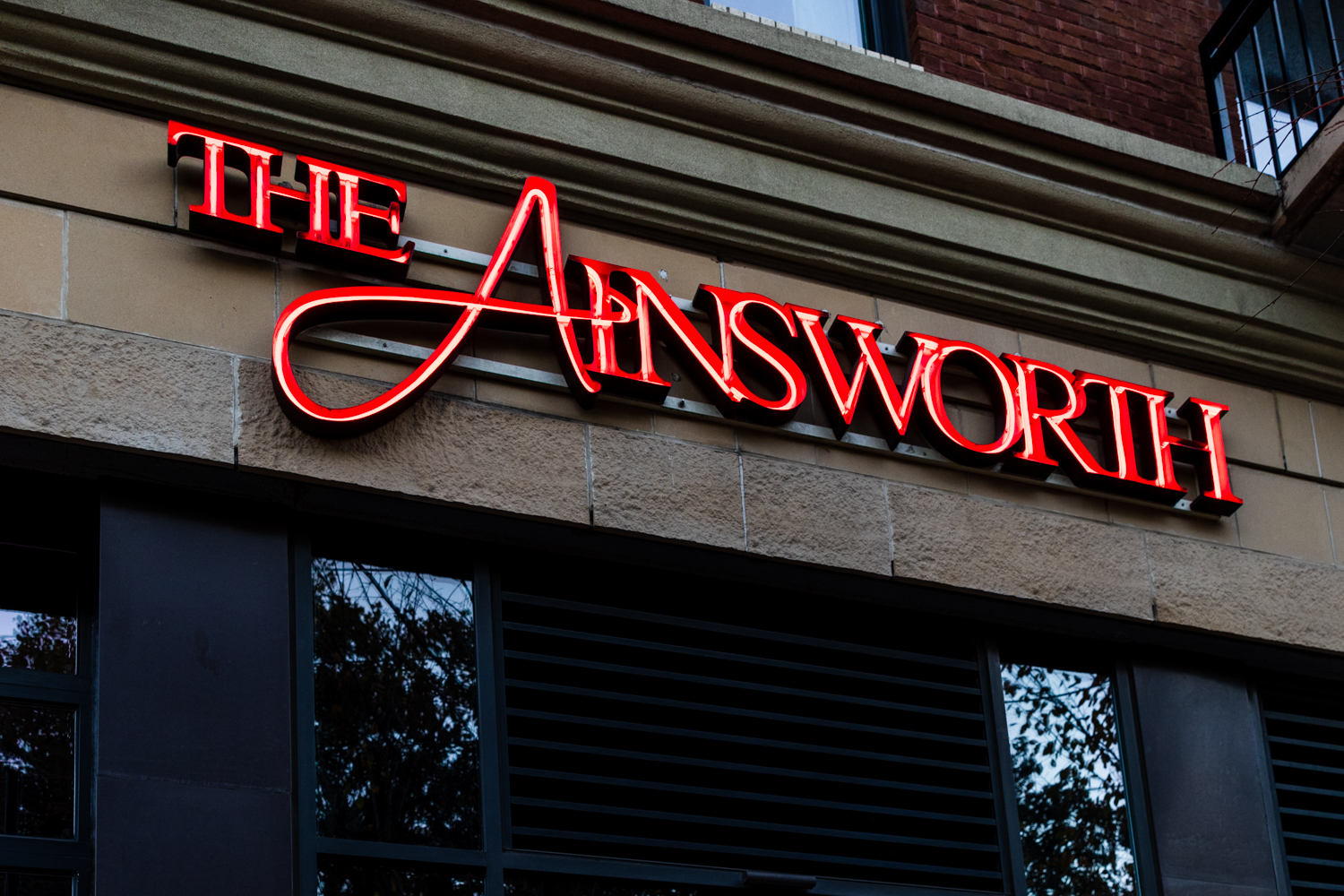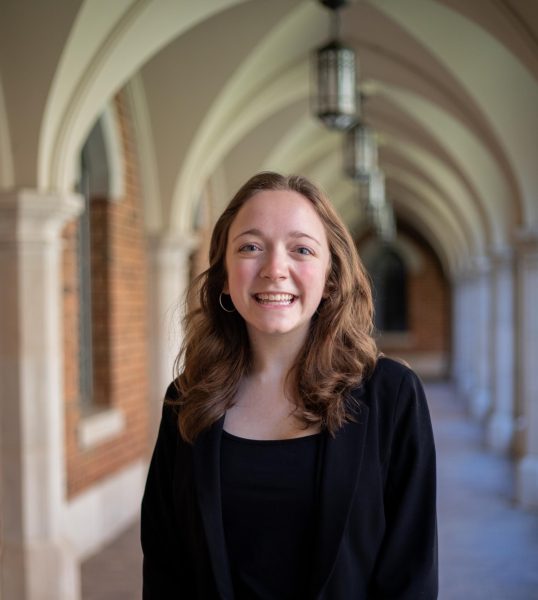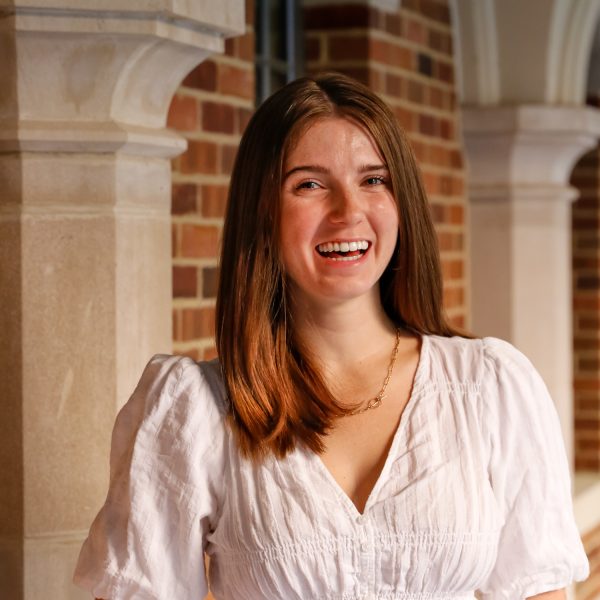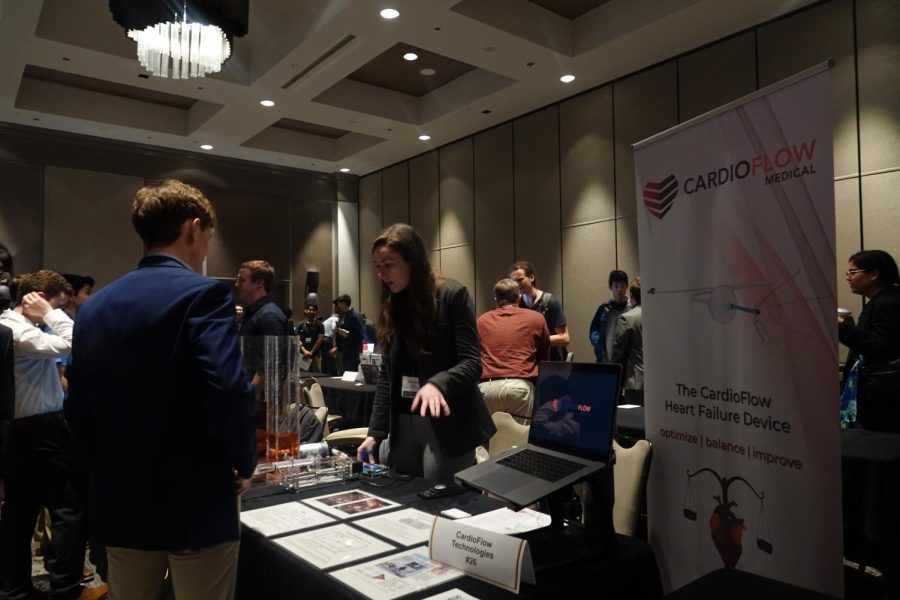UPDATED: This article was updated on Nov. 17, 2022, at 5:15 p.m. CST to include information from documents obtained by The Hustler.
Cryptocurrency investors Sam Thapaliya and Yuta Moxley hosted various on- and off-campus events in the Fall 2022 semester to promote entrepreneurship opportunities to Vanderbilt undergraduates. Totaling “tens of thousands of dollars,” these events included a Web3 mixer at the Zeppelin Nashville and a pre-launch party at the Ainsworth for Moxley’s new crypto app.
The primary difference between Web3 and our current internet is its emphasis on decentralization—in other words, reducing the power and influence of big data companies. Web3 is especially relevant to web developers because it incorporates token-based economies and blockchain, both of which are central to cryptocurrency. A blockchain is a decentralized ledger system that records cryptocurrency transactions across all computers in a network to prevent hacking or alteration of the system.
Thapaliya is the founder of Zebec, a crypto startup company. The company’s website reads that it is a continuous settlement protocol that allows individuals to be paid for their work in real-time, instead of receiving scheduled paychecks.
Moxley’s app, TOMO, aims to scale up word-of-mouth advertising by incentivizing users with coupons. For example, users might be instructed to visit a coffee shop and post a photo of themselves with the coffee; in exchange, the user may receive 10% off or a free drink the next time they visit that coffee shop.
“It’s almost like a loyalty rewards program with an extra component of social media, and the businesses for whom we do this loyalty program pay us a commission on sales,” Moxley said.
Thapaliya said he met senior Cooper Scanlon, secretary of Vanderbilt Blockchain, in July 2022, who invited him to speak at Vanderbilt. Scanlon said Thapaliya’s visit intended to encourage students to enter the cryptocurrency industry.
“He has a lot of doors that are open for him, and his mission is to open those doors for people where he was a few years ago,” Scanlon said.
Crypto comes to Vanderbilt
Thapaliya cited Nashville’s rapid development and tax policies as reasons why he chose to recruit at Vanderbilt. On April 6, Tennessee became the second state to pass legislation recognizing and authorizing the LLC registration of decentralized autonomous organizations. DAOs are computer code-run companies that operate via blockchain technology. According to Thapaliya, this law provides limited liability protection for business and technology investors.
Thapaliya said he hopes to build a cryptocurrency network in Nashville through incubating—helping a startup grow—student-led startups. He created 54e961 (54e), a virtual incubation group, which consists of student “founders” from Vanderbilt, Stanford University, Duke University, American University and the University of Texas-Austin. These students are building various products on the blockchain Aptos, a spinoff of a blockchain made by Facebook.
On Nov. 10, Reuters uncovered that FTX, one of the largest cryptocurrency exchanges, was missing over $1 billion in investor funds, and the company soon filed for bankruptcy. As the value of FTX in the market plummets, Aptos has also been falling recently.
Among the 54e founders are Scanlon; junior Jason Hedman, president of Vanderbilt’s Kappa chapter of Kappa Sigma Fraternity; and senior Craig Murray. Scanlon is now the lead for 54e recruiting at Vanderbilt.
“The goal of the incubation group and Crypto at Vandy is to bring volatile people together and build things bigger than ourselves. What is huge about Aptos is that it is a brand new blockchain built on a brand new coding language, so the playing field is extraordinarily level. It’s a golden opportunity to take the first step down the exciting path of entrepreneurship alongside all-stars of top schools across the U.S.,” Scanlon said.
Scanlon and Hedman’s startup—Satay Finance—was incubated by 54e in the incubator’s early stages. Scanlon stated that the name of the company comes from a trend of naming protocols after food, as seen with PancakeSwap and SushiSwap, which was informed by Aptos marketing and community; he said it is not correlated to Thai Satay restaurant—a Vanderbilt staple and Taste of Nashville location. Hedman explained that Satay Finance is a yield aggregator that works to connect different protocols on Aptos. Hedman and Scanlon said they hope this company makes it easier for consumers to invest in a wide range of products.
“[Thapaliya] has established connections with people who are looking to get into the Aptos ecosystem, and he is incubating our company as a first mover in Aptos,” Hedman said.
Thapaliya said Satay Finance raised $100,000 after receiving a valuation of $20 million from venture capital firms and its strategic partners, including Cogitent Ventures and Pontem Network. However, Scanlon provided documentation that lists the valuation at another eight-figure amount. The name of the Cogitent Ventures partner who signed the document was blurred out.
The money entrepreneurs raise at a given valuation determines investors’ percent equity in their company. A representative of Sayantan Mitra, a Cogitent Ventures partner, confirmed to The Hustler that it invested in Satay Finance. They declined to disclose the amount invested in Satay Finance.
“Let’s say I raise $10 at a $100 post-money valuation; 10% of the value of the company would belong to investors,” Scanlon said. “It gets a little more complicated with crypto because you also have tokens, which are a more liquid investment offering that can be given in addition to or in place of company equity.”
Scanlon said all money he has received from investors has been used solely for company expenditures, primarily to onboard smart contract architects and engineers. He added that he has contributed personal funds toward recruitment at Vanderbilt, including catering for a Vanderbilt speaker event featuring Thapaliya. This Q&A event was held on Aug. 25 and was jointly hosted by Vanderbilt Blockchain and VINES. According to Thapaliya, over 100 students attended the event.
A similar Q&A event was held with Moxley on Sept. 26, jointly hosted by Vanderbilt Blockchain and VINES. After earning his bachelor’s degree, Moxley enrolled in Vanderbilt’s six-month data analytics boot camp. He then went on to work at AllianceBernstein in Nashville. Seven months into working for AllianceBernstein, Moxley quit to work in cryptocurrency full-time. Since then, he has co-founded the protocol TreasureDAO and the app TOMO.
“By day, I was doing that work [at AllianceBernstein]. At night, I was just learning more about the cryptocurrency space, getting really into Web3, investing in protocols with what little money I had and also formulating my own ideas,” Moxley said. “As a smart contract engineer, a big part of [my] job as a creator is to figure out what can come next.”
Other speakers that were brought to campus by Vanderbilt Blockchain include Jake DiBattista, whose company EduCoin aims to integrate education into the Web3 space, and Preston Van Loon, the co-founder of Prysmatic Labs and Ethereum Core Developer. Van Loon’s Sept. 22 visit was sponsored by the Ethereum Foundation.
While Thapaliya said the application process to join the 54e961 incubation group is highly selective, he said has established a “strong rapport” with Scanlon and Hedman and will give higher consideration to Vanderbilt students directly recommended by Scanlon or Hedman.
“Builders have eyes for other builders. Hustlers attract hustlers. That’s the way we like to work,” Thapaliya said.
However, as of Oct. 31, Scanlon said his and other 54e members’ priorities have shifted away from recruitment and toward building their companies.
“Now all efforts are going toward building, and I’m 100% focused on my company,” Scanlon said. “Although we [54e] don’t have the bandwidth to actively recruit, we still welcome people interested in blockchain, crypto, Web3, future tech and entrepreneurship with open arms and will do all we can to mentor and support them.”
Promotional events
To publicize 54e961 and “give back to Vanderbilt,” Scanlon organized a mixer at Zeppelin Nashville on Aug. 26. Members of Vanderbilt Innovation and Entrepreneurship Society, Vanderbilt Blockchain, Vanderbilt’s chapter of the Alpha Kappa Psi business fraternity, Vanderbilt’s chapter of Kappa Sigma Fraternity and Product Space—another student organization—were all invited to the event.
Scanlon explained that he connected Moxley and his partners with various students on campus, including Hedman, to help coordinate the mixer. Kappa Sigma brothers acted as party patrol members and bouncers but did not help plan or fund the event, according to Hedman. He added that he believes Scanlon reached out to Kappa Sigma due to the fraternity’s involvement and interest in the cryptocurrency space.
“[54e961] reached out to us to fill up the capacity, bring more attention to the event and prove the group is valid. We were solely guests helping them out in their efforts,” Hedman said. “I was kind of playing the role of the aspiring founder as well as somebody with the ability to help them advertise the event.”
Thapaliya called the mixer a “mess” and overcrowded, though he was unsure about the specific number of attendees. He added that students interested in cryptocurrency did not have an opportunity to talk to founders and others in the field.
“Instead of being a mixer, it became a party. There were a lot of crypto founders that were in Nashville that came to the event, but they all left within 15-20 minutes,” Thapaliya said. “Way too many people showed up, and thank God for Jason and KSig because, if it weren’t for them, the party would have been shut down within 15 minutes.”
The pre-launch party held at the Ainsworth on Sept. 30 for Moxley’s app, TOMO, similarly garnered a crowd, with approximately 300 people in attendance, per Moxley. It featured a brief speech from Moxley, after which he mingled with the attendees to advertise TOMO. Moxley said TOMO was supposed to be available on the App Store by the time of the Ainsworth launch party; due to “delays,” he now expects it to be available in January.
Moxley said the TOMO team primarily funded the event’s drink tab but declined to disclose the exact amount spent on the event.
“[The pre-launch party] had a dual function. One, obviously, I wanted it to be like a mixer, so I could speak with student org reps or even the presidents of fraternities and sororities. We can collaborate with them in the future to host additional events and spread more awareness about what we’re doing at TOMO and how students can get involved,” Moxley said. “The other piece is just showing students that TOMO is here, and this is what we stand for.”
Sophomore and Vanderbilt Blockchain member Neel Raj added that some of the cryptocurrency founders present at the event rented a yacht to host an exclusive after-party following the TOMO pre-launch party. Moxley said he was not aware of this after-party. Unlike the Zeppelin mixer, the high turnout at the Ainsworth did not cause any issues, per Moxley.
Vanderbilt Blockchain President Lincoln Murr, a junior, declined to comment on the mixers and said the club has not had any relationship with Thapaliya, Moxley or 54e beyond hosting speaker events. Murr said crypto courses being held by the organization are not affiliated with 54e.
“The beginner course we’re building is aimed at getting students up to speed on all things that they might need to know about blockchain, cryptocurrency, or Web3,” Murr said.
Effects on Vanderbilt community
According to Murr’s mid-semester recap letter to Vanderbilt Blockchain, the recent string of crypto events has dramatically increased student interest in the organization, which grew nearly 100% to over 200 members this semester. As a member of Vanderbilt Blockchain’s “genesis cohort” research committee, Raj said he believes Vanderbilt Blockchain has made cryptocurrency very accessible this semester.
“A lot of technical vocabulary gets thrown around, but it never feels like it’s gatekept. I think people of all experience levels can grow and learn about decentralized currency through Vanderbilt Blockchain,” Raj said.
Raj added that he enjoys learning about cryptocurrency and believes that the “mystery” surrounding crypto is what draws people to the field.
“A reason for the popularity of Vanderbilt Blockchain is the allure of crypto. It’s definitely a very mysterious subject, and there’s a lot of money to be made there,” Raj said. “Even as a pre-med engineer, I find that just having this experience is very foundational because I truly believe decentralized currencies will be the way of the future.”
Other students have received career opportunities as a result of 54e’s recruiting, Moxley’s advertising and Vanderbilt Blockchain’s networking. For example, sophomore Ocean Okohson-Reb said he now works on organizing and marketing for 54e and is a marketing intern for TOMO. Murr’s letter reads that Vanderbilt Blockchain has had a 100% employment rate for members interested in entering Web3 and is planning a blockchain job fair with local Nashville companies to be held by the end of the Fall 2022 semester.
Editor’s note: The Hustler does not endorse any investing strategies nor does this piece serve as investing advice.










